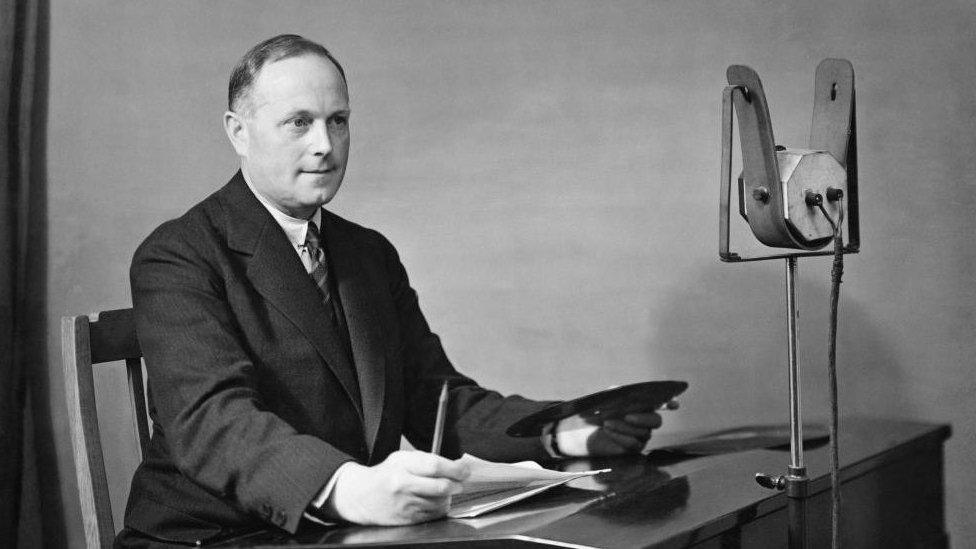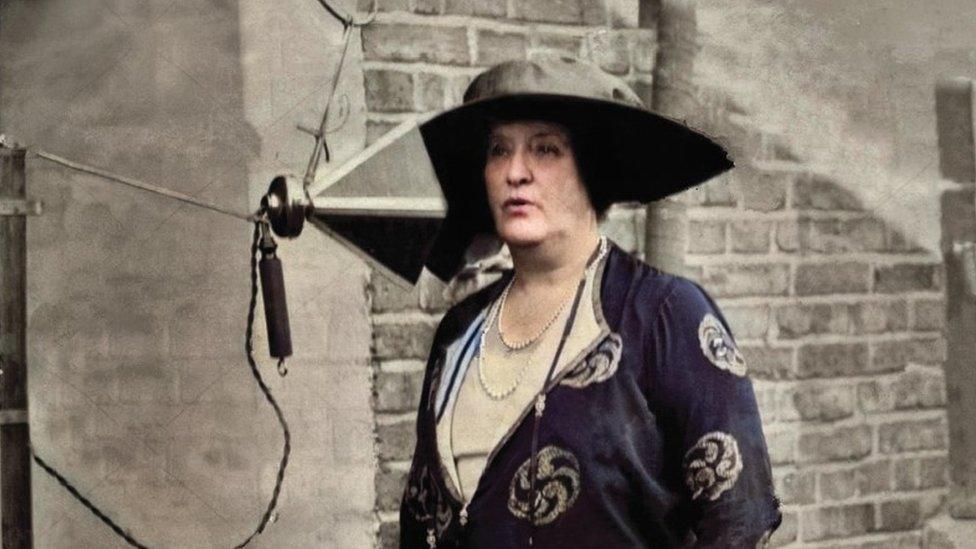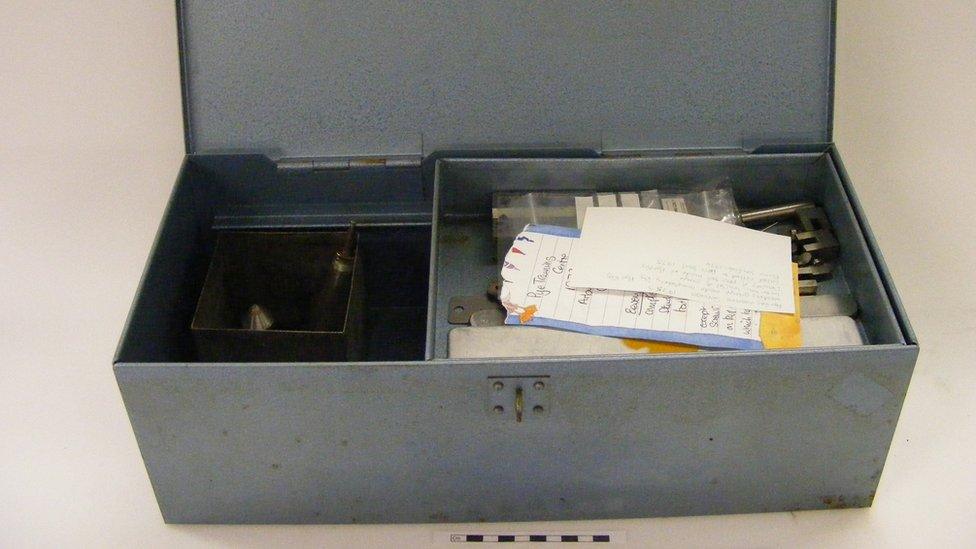Pye radio exhibition in Cambridge celebrates BBC centenary
- Published
Pye started out producing radio equipment and moved into televisions and TV cameras
About 25 early radio sets dating from 1922 to 1932 are on show at an exhibition marking the BBC's centenary.
Collector Mike Kemp said within 10 years of the first broadcast "half the homes in the country had a radio set".
All the radios on display were made by the Cambridge company Pye, with most coming from Dr Kemp's collection.
The exhibition called Radio Enters the Home is at the Cambridge Museum of Technology, external, which also has a permanent display of Pye products.

Most of the Pye domestic radios in the exhibition belong to collector Mike Kemp

Dr Kemp said the radios were usually stored in a spare room "we call the radio room - my wife is very forgiving"
Dr Kemp said radio was "humungous and people realised that, and companies like Pye and others started to innovate".
Pye was founded in a garden shed by William George Pye and made scientific instruments, before it began making wireless receivers in 1922 for teaching students the rudiments of wireless.
After the BBC began daily broadcasts in November 1922, the demand for wireless receivers greatly increased and by 1924 Pye was producing 200 home radios, external a week.

About 25 of the earliest Pye domestic radios will be on display, alongside information on the history of the BBC
Dr Kemp said companies like Pye started to innovate, moving on from the first radios which "look like scientific instruments", to its first portable radio in 1925.
"This included all the heavy batteries, so although it was called portable, you had to be really quite strong to carry it from room to room, or heave it in a car to take on a picnic," he added.
Bob Bates, trustee of The Pye History Trust, external, said: "Radio really took off to become the driving force to building the company and it could be considered one of the founding industries of the high-tech industries here in Cambridge."

Find BBC News: East of England on Facebook, external, Instagram, external and Twitter, external. If you have a story suggestion email eastofenglandnews@bbc.co.uk, external
Related topics
- Published14 November 2022

- Published15 June 2020

- Published12 May 2018
